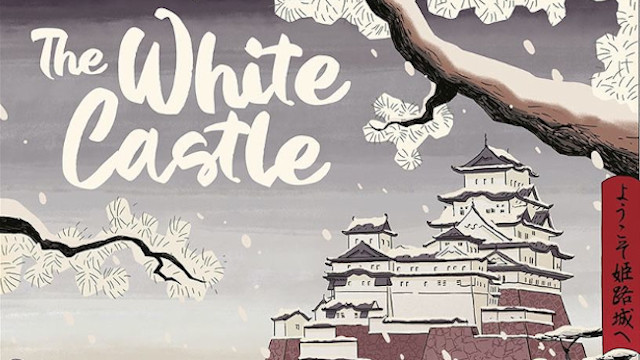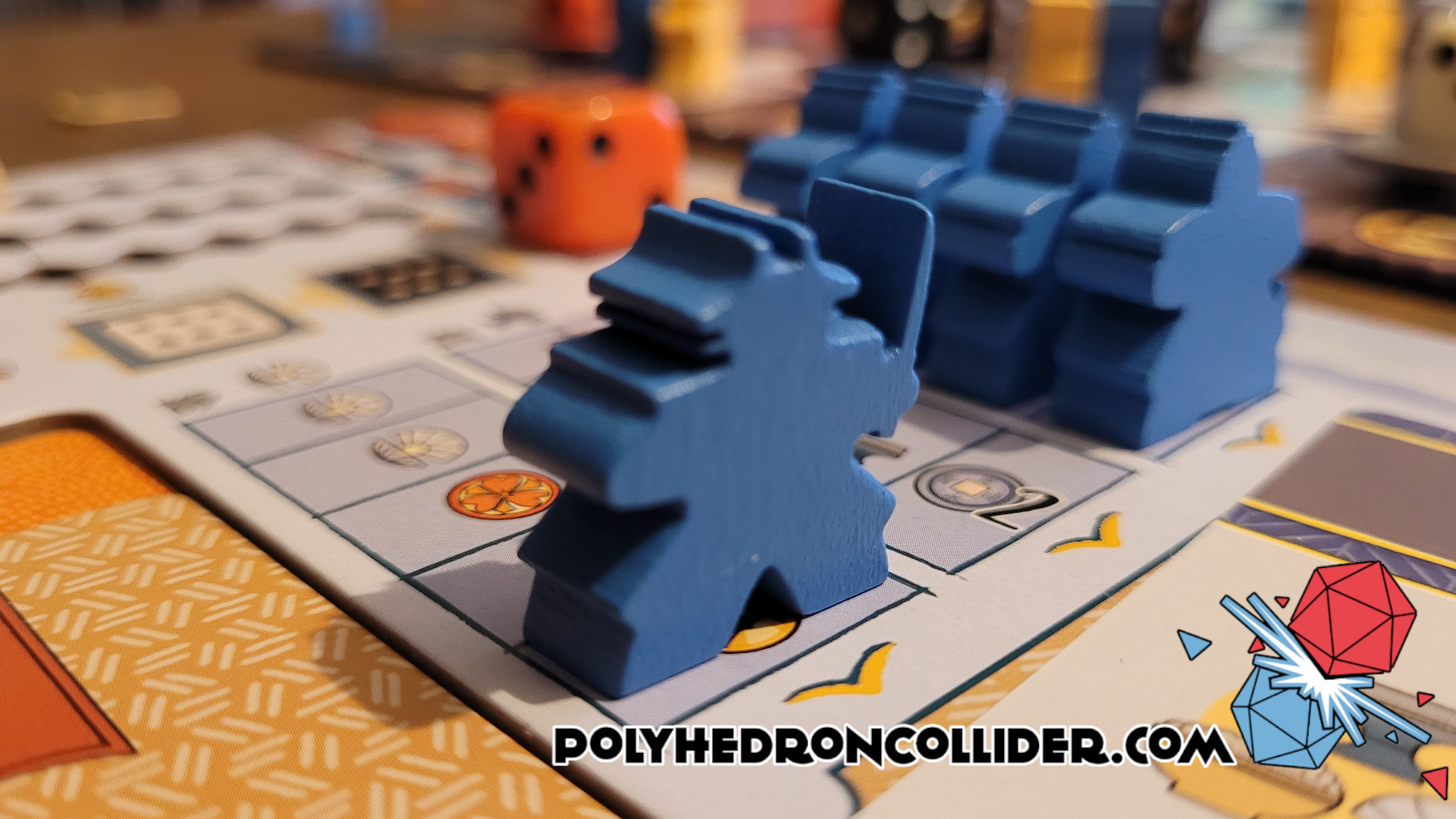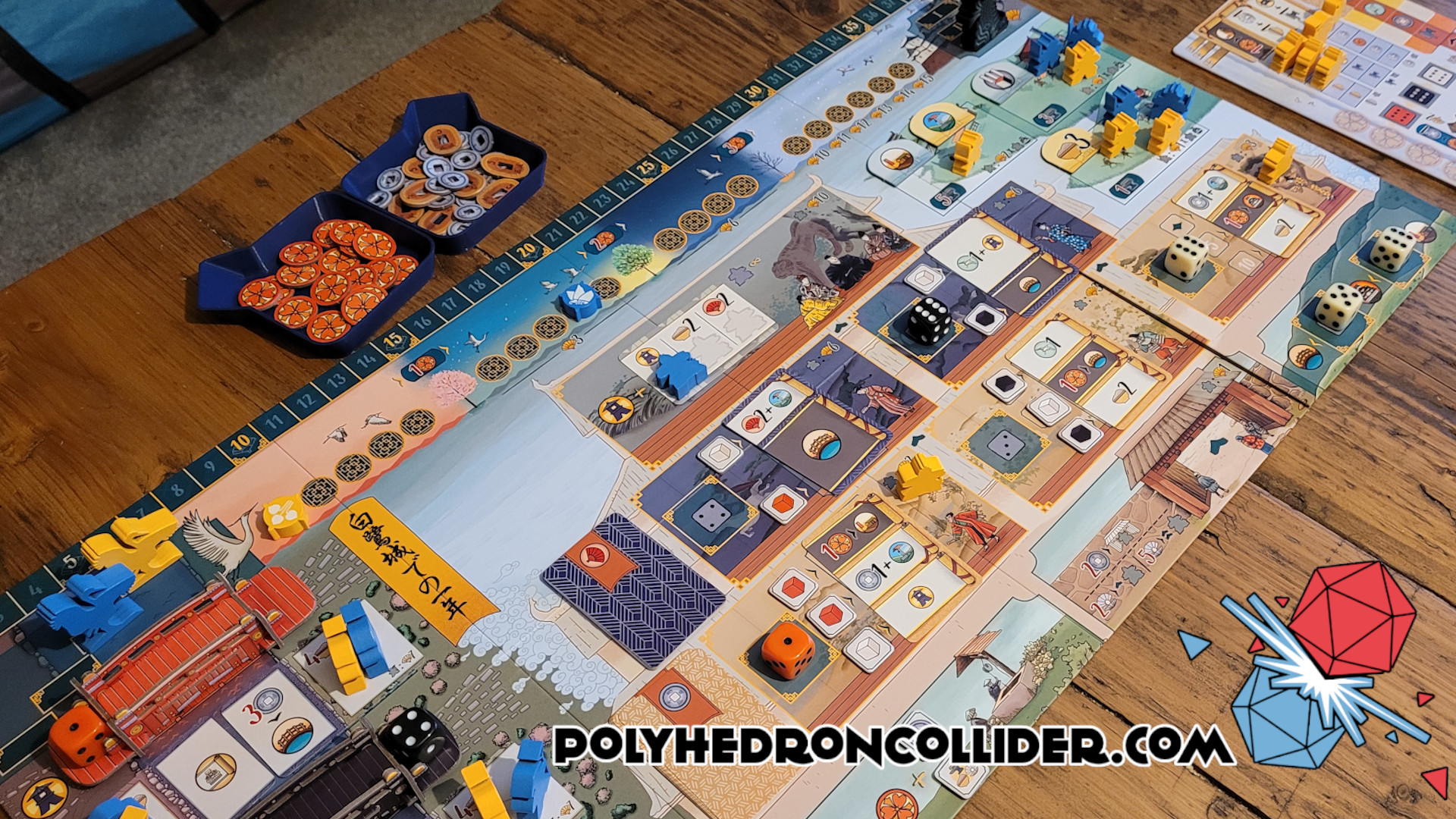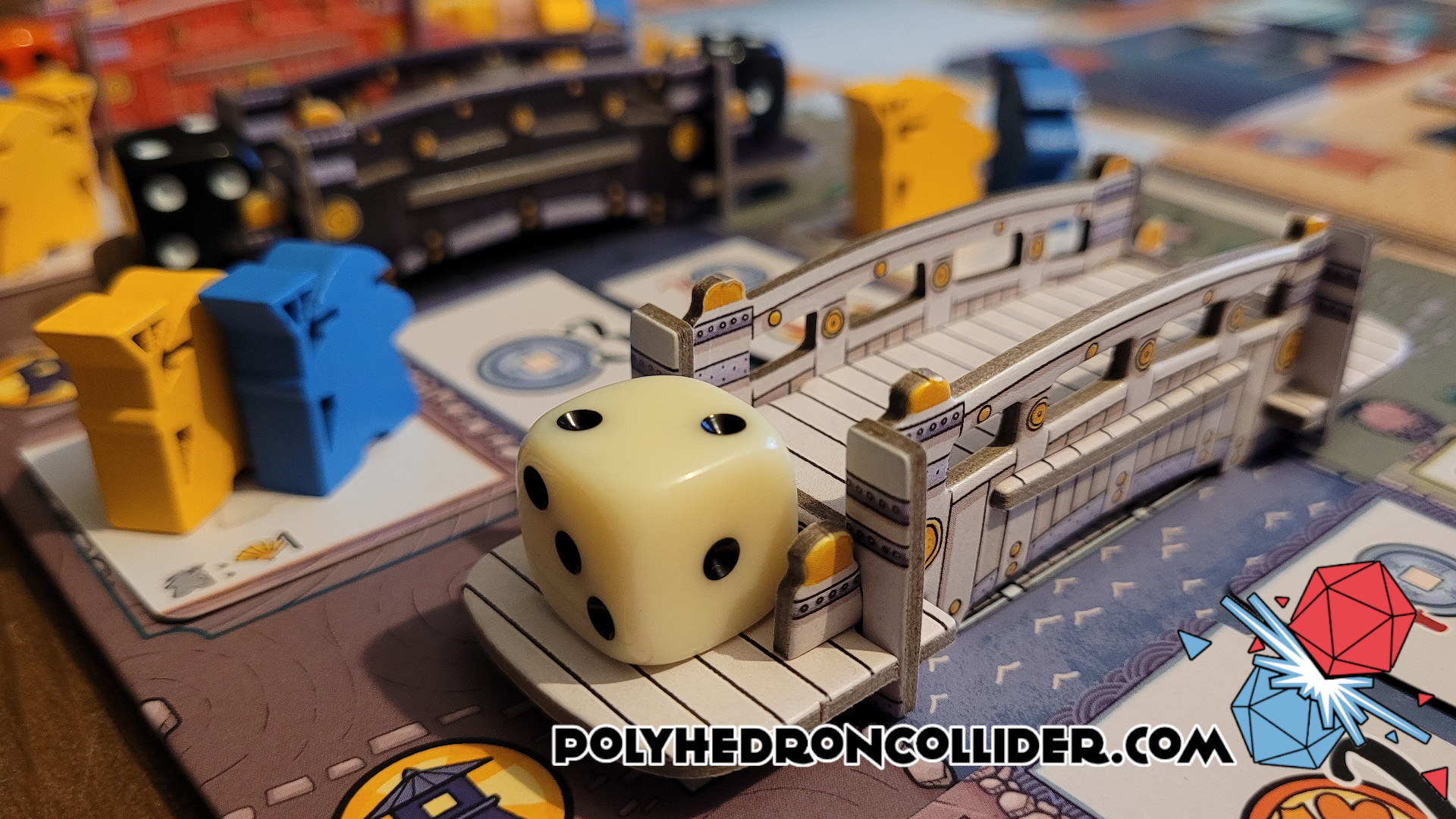White Castle is an extremely tight euro dice placement game in which you take the role of a clan leader in Japan. Throughout the game, you are going to send your Courtiers, your Warriors, and your Gardeners out into the land to curry favour with the Emperor so that you can earn your prestige. The player with the most prestige at the end of the game wins.
The entire game lasts nine turns, so, in case you missed it in the first paragraph. This game is very tight.
In your turn you will pick up one die from one of the three bridges, here you'll need to pick either the highest number die or the lowest number die and depending on its colour or its number you will place it on one of the action slots on the board (all of which change every game). You will then fire off the action of that location. And maybe some sub-actions. And maybe some more sub actions; if you've been really, really clever. Turn then passes to your opponent where they will do something similar. However, no matter what they do, their action is pretty much guaranteed to utterly piss in your chips. Play continues to the next player. More chip pissing occurs and so on. Do this three times and you finish the round, score some points, do some bonus end-of-round actions and realise how very wet your chips are.
Repeat this process twice more and the game ends. At some point in the third round you realise that you've not got nearly enough resources, nearly enough points, and that you need at least five more actions to pull off your plan, and you’ll also notice with some despair that you have somehow not even made it off the starting point of the score track.
Actually, that won’t just happen in the third round (you’ll just notice it with more gravity in the final stage of the game), it will happen in each and every single turn. You may well think that nine rounds will make for a pretty short game and that maybe just placing a single die will lead to pretty quick turns. But, dear reader, what you don’t yet understand, is that each turn comes with an immense decision-making process.
I would describe the White Castle as an Espresso Euro: it is everything you want from a Euro in a shot. It has big, meaty decisions every step of the way. In some ways, it's hard to plan too far ahead because the game state changes so quickly. You have to pay attention, you have to be thinking, you have to look for those synergies at every moment and it's so easy to make a mistake. You are always going to want one more of this resource, or one more money, or one more action.
Like all good Euros, there is a lot to try and do, and little time to do all of those things, and not enough resources to do all of them well. Every resource is important and is all too often scarce. Each action needs to be thought through carefully. The White Castle is a very unforgiving game, and in case you’ve not yet understood the severity of the core mechanism; the action economy of this game is extremely tight. The torque has been ratcheted up, almost to breaking point, and you will feel that stress and tension from the first move to the last.






No comments:
Post a Comment